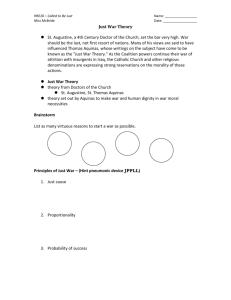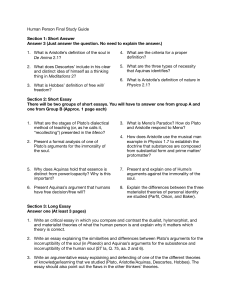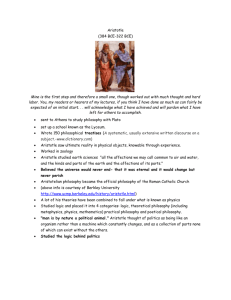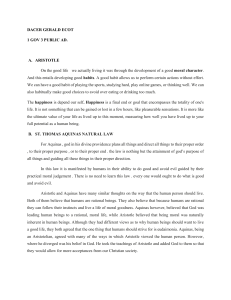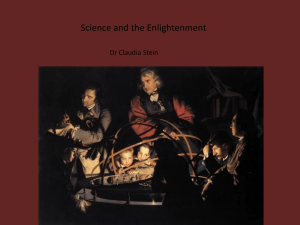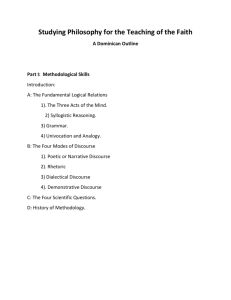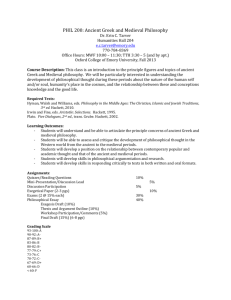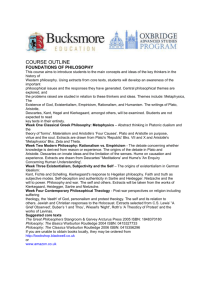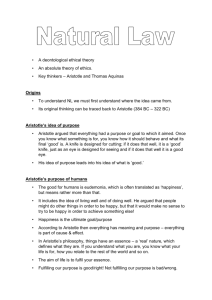Medieval Philosophy
advertisement
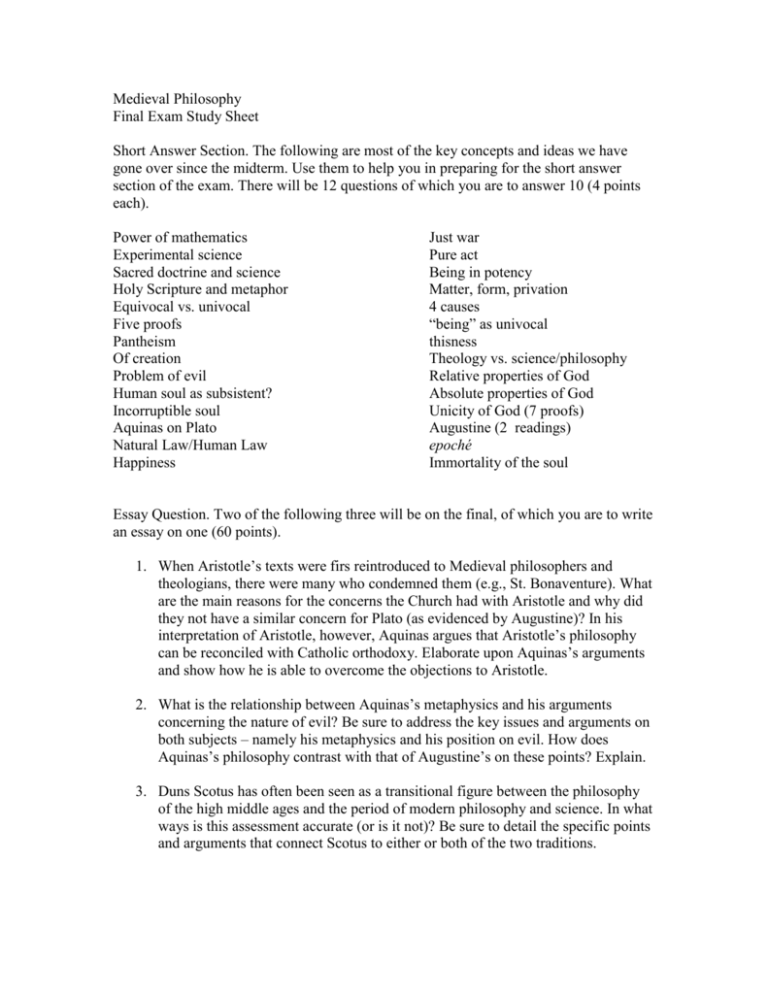
Medieval Philosophy Final Exam Study Sheet Short Answer Section. The following are most of the key concepts and ideas we have gone over since the midterm. Use them to help you in preparing for the short answer section of the exam. There will be 12 questions of which you are to answer 10 (4 points each). Power of mathematics Experimental science Sacred doctrine and science Holy Scripture and metaphor Equivocal vs. univocal Five proofs Pantheism Of creation Problem of evil Human soul as subsistent? Incorruptible soul Aquinas on Plato Natural Law/Human Law Happiness Just war Pure act Being in potency Matter, form, privation 4 causes “being” as univocal thisness Theology vs. science/philosophy Relative properties of God Absolute properties of God Unicity of God (7 proofs) Augustine (2 readings) epoché Immortality of the soul Essay Question. Two of the following three will be on the final, of which you are to write an essay on one (60 points). 1. When Aristotle’s texts were firs reintroduced to Medieval philosophers and theologians, there were many who condemned them (e.g., St. Bonaventure). What are the main reasons for the concerns the Church had with Aristotle and why did they not have a similar concern for Plato (as evidenced by Augustine)? In his interpretation of Aristotle, however, Aquinas argues that Aristotle’s philosophy can be reconciled with Catholic orthodoxy. Elaborate upon Aquinas’s arguments and show how he is able to overcome the objections to Aristotle. 2. What is the relationship between Aquinas’s metaphysics and his arguments concerning the nature of evil? Be sure to address the key issues and arguments on both subjects – namely his metaphysics and his position on evil. How does Aquinas’s philosophy contrast with that of Augustine’s on these points? Explain. 3. Duns Scotus has often been seen as a transitional figure between the philosophy of the high middle ages and the period of modern philosophy and science. In what ways is this assessment accurate (or is it not)? Be sure to detail the specific points and arguments that connect Scotus to either or both of the two traditions.

